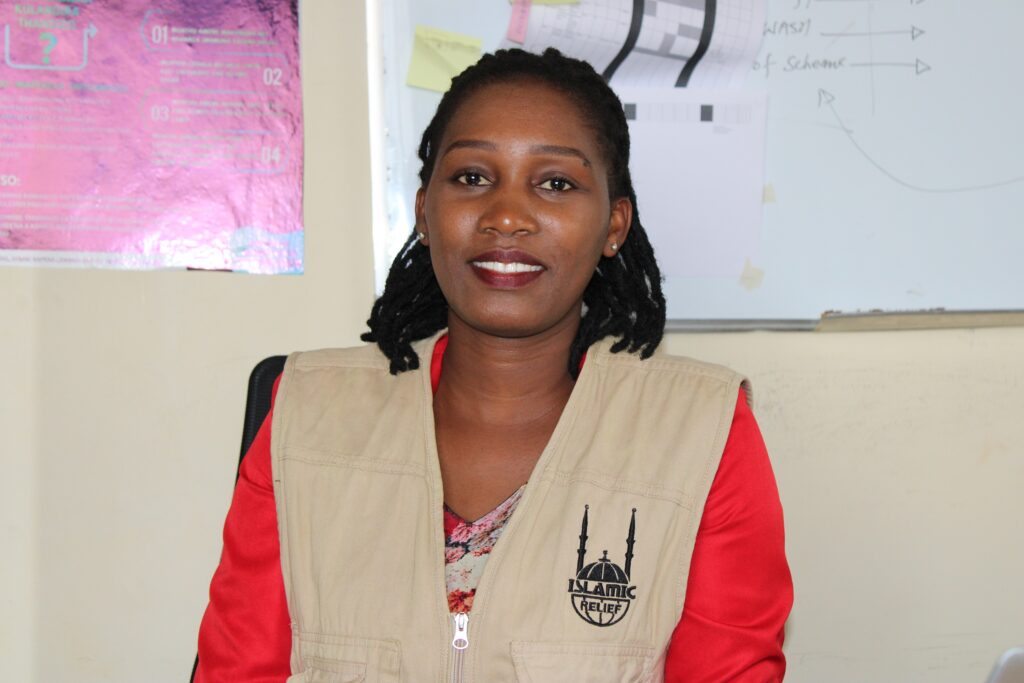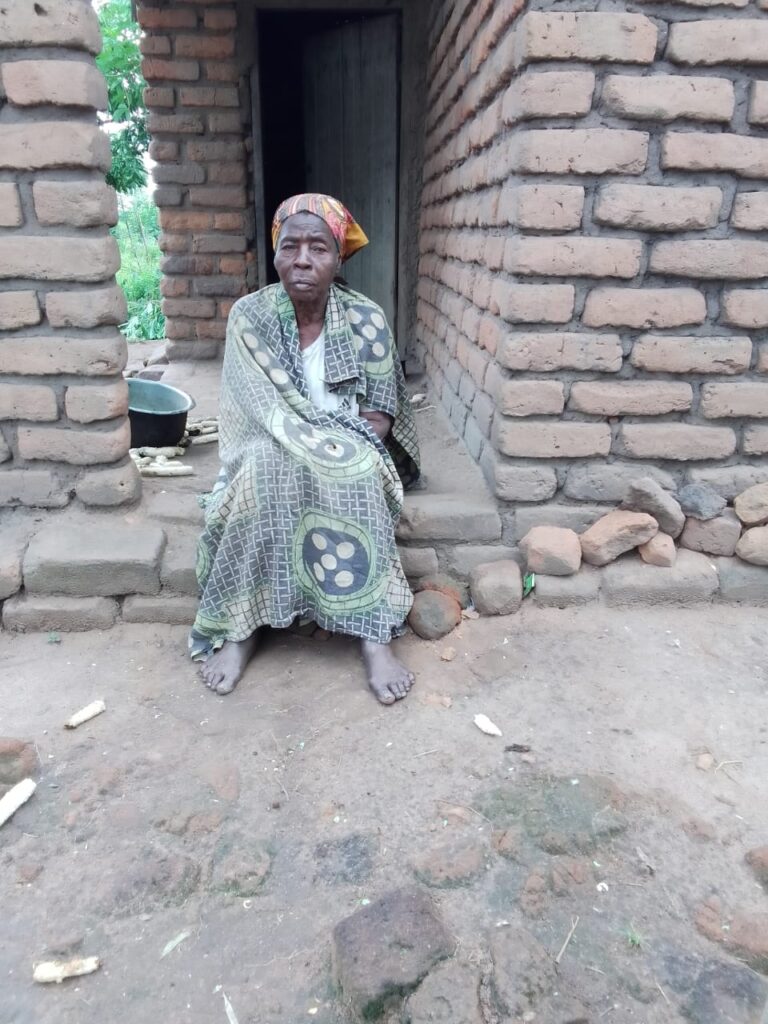In her first blog of the year, regular blogger and Communications and Media officer, Elizabeth Mandala recounts the devastating impact a string of crises is having on farmers in Malawi.

From Covid-19 to Cyclone Freddy, situations in recent years have left many people in Malawi traumatised. Not so long ago, the country was engulfed by its worst-ever cholera outbreak, which left over 1,000 people dead. These events, along with persistent rains causing floods, have had a profoundly negative impact on many families and the country’s economy. Over 1,000 lives were lost, and 1.5 million were displaced during this period.
Everyone is now beginning the process of trying to recover. Islamic Relief’s partners played an essential role in supporting the Malawian government with medical and personal protective equipment during the pandemic. During and after the cyclone, Islamic Relief also reached out to the most-affected families with much-needed items. We thank our donors for making this work possible.
A new crisis emerges
Just as it seemed like Malawi was on track to rebuilding lives and livelihoods, the country now faces another crisis – a dry spell, which I fear will exacerbate malnutrition and hinder people’s ability to access food. The anticipated rains did not arrive, leaving many crops completely wilted.
Malawi typically receives its first rains for planting in October, which lasts until April of the following year. This planting season sustains many households until the next farming season through the cultivation of maize, our staple food.
On Saturday 23 March 2024, the Malawian President declared a state of disaster in 23 out of the country’s 28 districts due to the severe drought caused by El Nino. Over 2 million farming households have been adversely affected in these districts, with over 749,000 hectares of maize – 44.3 percent of the national crop area – impacted by the drought.
Additionally, other crucial crops such as rice, soybeans, cowpeas, and groundnuts have also suffered. The Malawi Vulnerability Assessment Committee (MVAC) is yet to release a comprehensive report detailing the extent of damage to these crops.
The president has made a plea for humanitarian assistance, acknowledging the imminent risk of hunger confronting many Malawians. To address the crisis, the country urgently requires approximately 357.6 billion Malawi Kwacha, equivalent to over 200 million USD (£158.4 million), to procure 600,000 tonnes of maize for distribution to affected households across all 23 districts. Malawi has been grappling with recurrent weather extremes in recent years, intensifying the challenges faced by its populace.
A different welcome in the field
In February, I embarked on a normal field visit to one of our project implementation areas, Chiradzulu. It’s one of the districts in the southern part of Malawi, where the dry spell has hit hardest. According to the district’s 2024 dry spell report, more than 150,000 farmers who planted maize, rice, beans, and various types of peas have been affected.
I usually receive a warm welcome whenever I travel to the field. People’s faces light up, and many are eager to share their stories of how Islamic Relief is changing their lives. However, this last field visit was different. I was greeted with sad faces; hunger was written all over them. Somehow, I had anticipated this sombre welcome.
During the 45 km drive to the field, I gazed out the window at wilted crops. My heart sank at the thought of the farmers’ efforts ending in devastation. Many in the villages rely on rain-fed farming, with winter cropping not being a viable option for most due to the unaffordability of water and irrigation equipment.
Felister, a 63-year-old woman, is among those who rely on rain-fed farming. She looked devastated by the situation. From her last year’s yield, she had kept some maize to plant for the next season. She even sold some to buy fertiliser, as she does every year after harvesting.

There is a proverb “all days are not Sunday” – it means we cannot expect luck to turn in our favour every time – and I’m going to borrow it here. This year, there haven’t been a lot of Sundays for Felister and so many others. After investing so much in her farm, Felister has lost all the crops, and even though the rains have now started, none of the crops can be revived. She is puzzled about what to do next; her daughter, who lives a few metres away from her house, was her only hope, but unfortunately, she has also been affected.
Islamic Relief’s response
A fraction of the community is benefiting from irrigation farming using solar water pumps funded by Islamic Relief and appear to be faring much better. Many harvested their crops just before the rains, ensuring they have food that will last them until the next farming season.
Other projects have seen efforts made to help vulnerable women with assets to head their own businesses and support their families. Many are progressing very well, and their lives are indeed changing.
During Ramadan, many heaved a sigh of relief, as Islamic Relief reached more than 3,400 vulnerable families with food packs to last them throughout the month. But as much as there was relief in those who received the food items, permanent and sustainable solutions are also vital. People need to graduate from poverty, and suffering shouldn’t be the norm of the day.
Islamic Relief is a lifeline to people in Malawi working to get back on their feet after multiple disasters. Please help us continue this vital work. Donate now.










